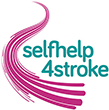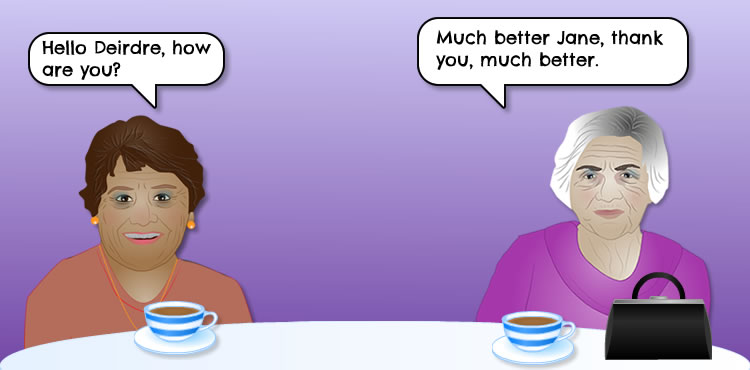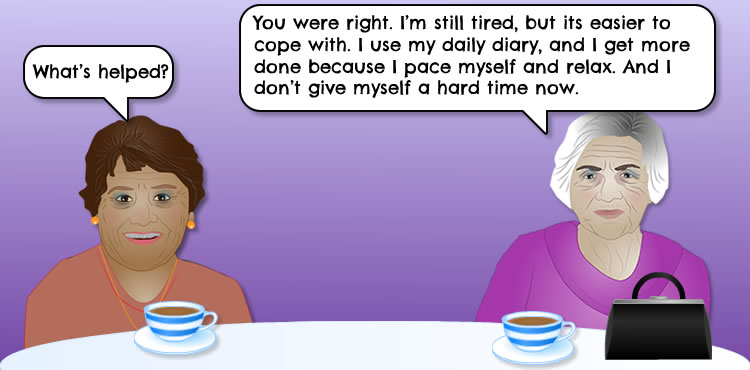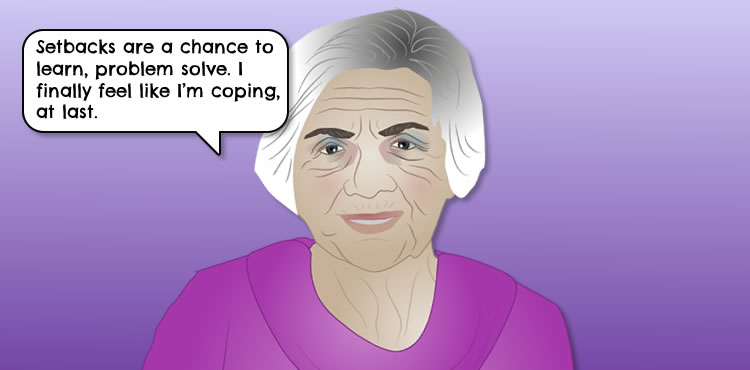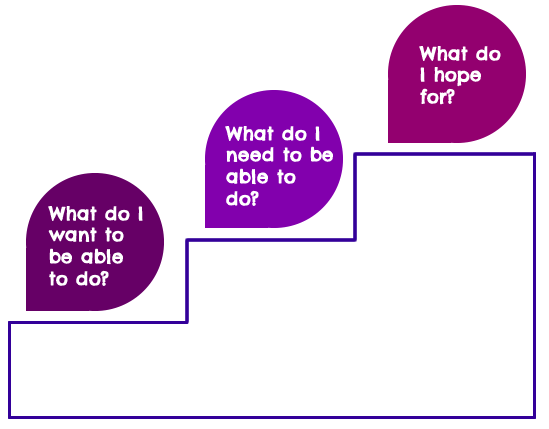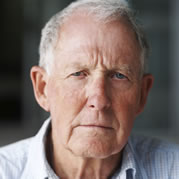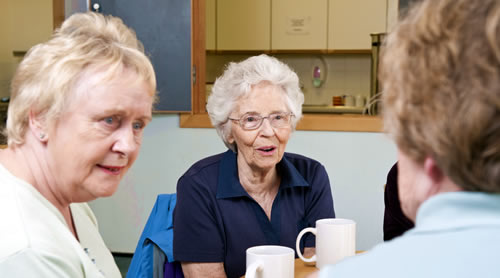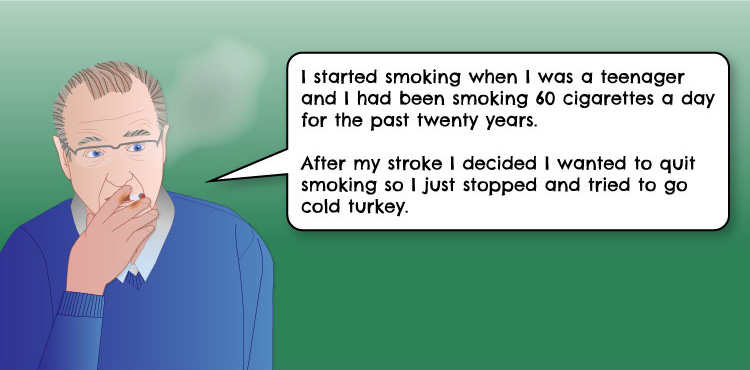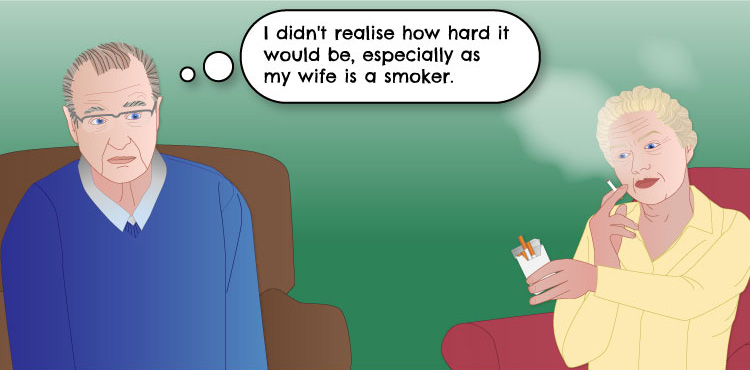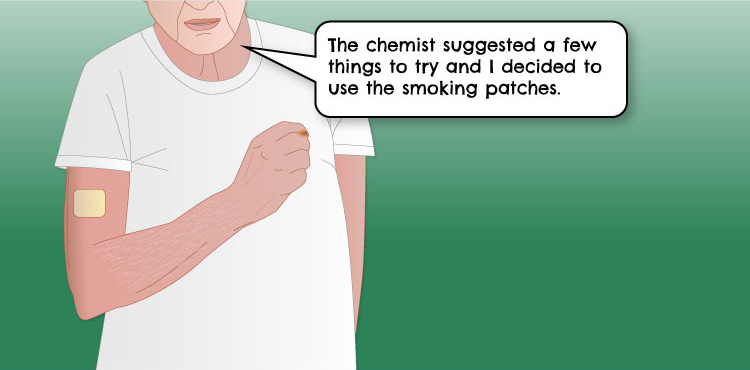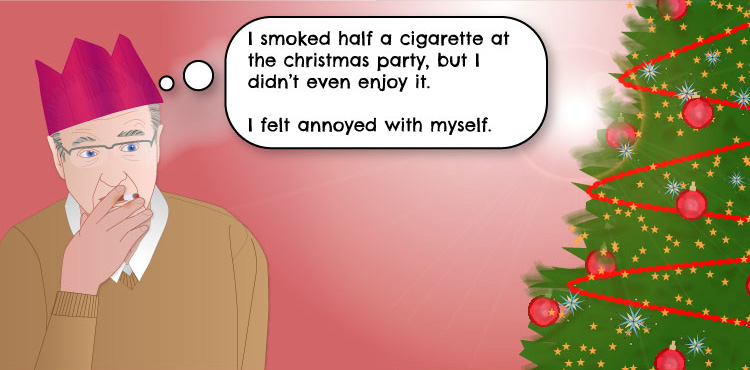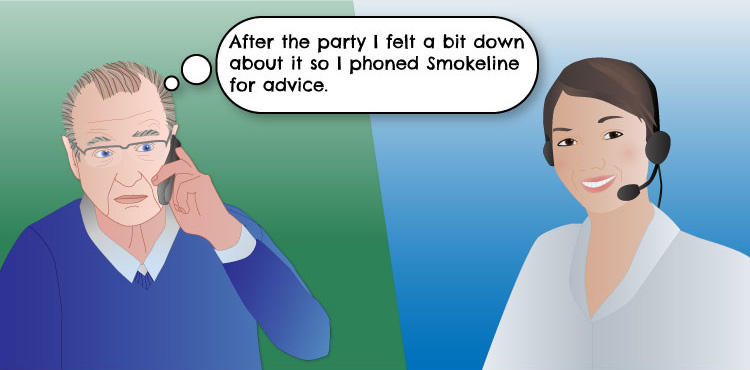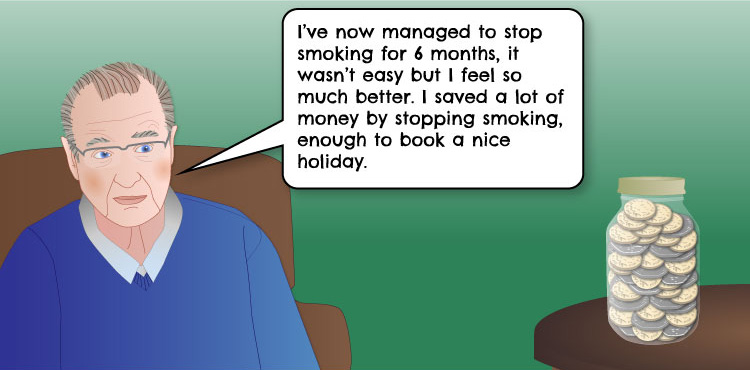Three weeks after leaving hospital Isobel felt she was ready to resume her activities around the house. Her husband had taken time off work and she was aware that he could not stay off for much longer. He had been undertaking all the housework and cooking but was not keen for Isobel to return to any of these tasks. Together they agreed which these tasks she would try first before moving on to others.
“Well I have been home from hospital a wee while. I am in the house a lot more than I was before my stroke. Which has been a hard adjustment as I was always out and about. I wouldn’t say I was housebound as such, but I am still reliant on my husband or daughter if I want to go out anywhere. I try not to dwell on this too much as I am doing a lot better than I was when I first came out of hospital. I have never been one much for daytime TV. I do watch it occasionally, as I like a bit of Loose Women! But I didn’t want to become a couch potato glued to the television. I read and do puzzles on my tablet. It keeps the mind active, but I have to remember to keep my body active too. Setting an alarm reminding me to get up about every 20 mins helps an awful lot. It is easy to lose track of time and stiffen up. Doing this from the start has really helped my flexibility and got me in a routine.
Before my stroke my husband would say I was a whirlwind around the house. Always a washing on, doing something. They offered me a home help when I left hospital, I said no at first, but it did help for the first wee while as my husband was out most the day and I was really tired. She was lovely and helpful, but I feel I am at the stage now I can do more for myself. I can now make my lunch, do a wee bit of laundry, even prepare a bit of dinner in advance. I can’t do it all in one go as I can tire really easily, but doing it in small chunks keeps me active and I feel I’ve got a purpose around the house.
Before my stroke I used to go to Tai chi most mornings. I still get to the odd class with my daughter, but not nearly as often. But I make it part of my routine to do some simple exercises every morning as best I can. I find it helps with my balance gives me energy and really helps my concentration. Music is also so good for me. Sometimes when nobody is about I turn up the radio and have a wee boogie to whatever’s on the radio! It’s been hard adjusting to my new lifestyle, but I don’t let it get me down. I remind myself that I have come a long way. Every little helps, no matter how silly it seems. If it works for you and it is safe, give it a go!”




